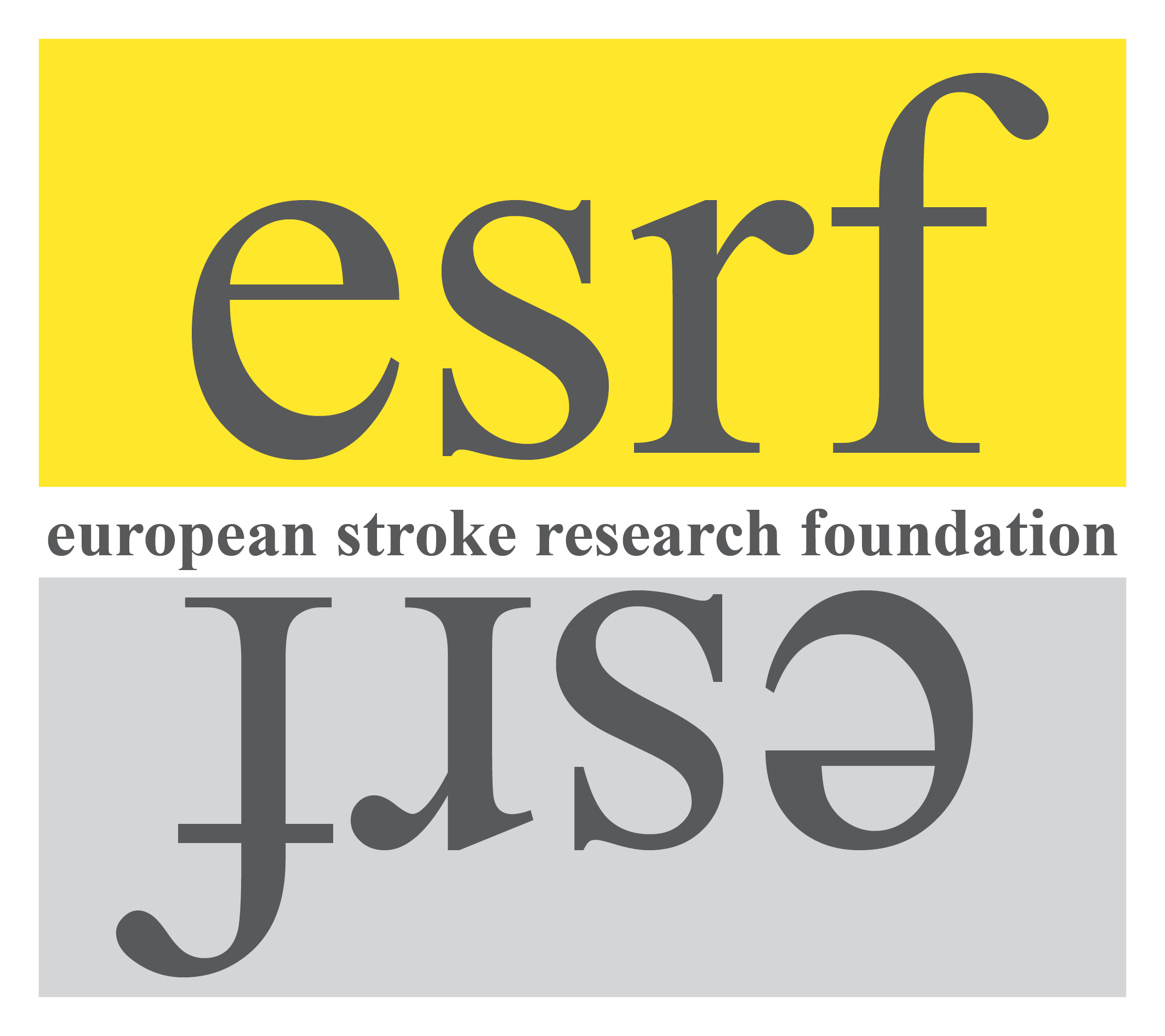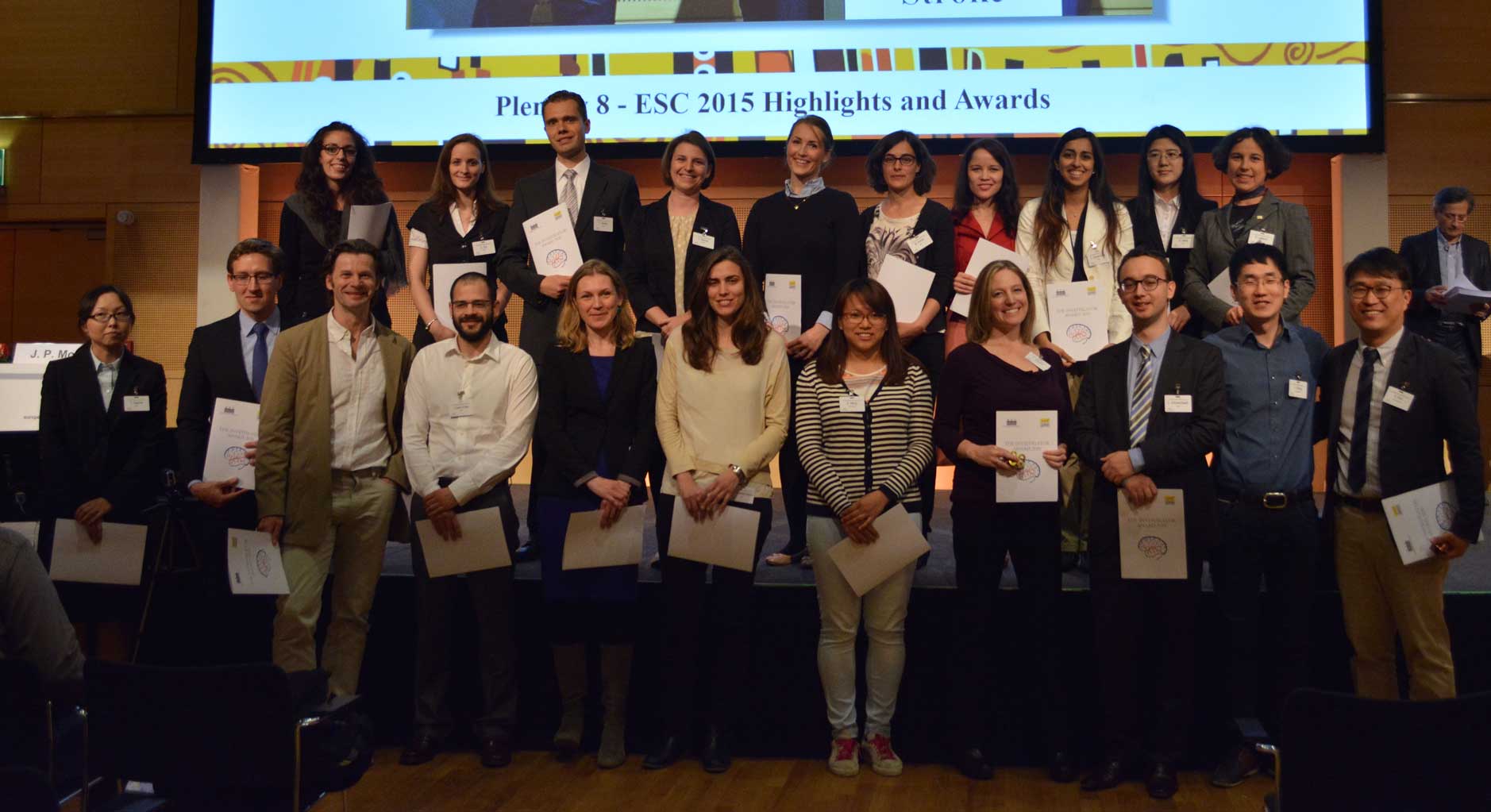European Stroke Research Foundation - esrf
ESRF Grants 2017 - Both ESRF and ESC awarded more than 50.000 € in junior travel grants and highlight prices for best scientific contributions this year!
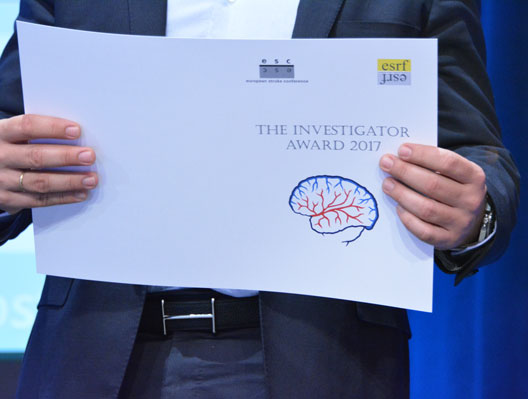
Congratulations to the award winners 2017!
The European Stroke Research Foundation is an independently incorporated registered non-profit charity! PRICES were awarded for best ranked abstract submissions on basic and clinical research. The ESRF and ESC awarded more than 50.000 € in travel grants and highlight prices 2017 to support communication and information of stroke research among students, residents, graduate fellows, young scientists and outstanding international stroke physicians.
Awardies 2017:
Experimental and translational stroke research including genetics OP
Transcription factor KLF11 Stabilizes Cerebral Microvasculature and Reduces Brain Damage In Ischemic Stroke
Ke-Jie Yin, USA
Stroke prognosis and prevention including best medical treatment and personalized medicin, OP
Predicting motor outcome after acute subcortical infarction with clinical assessment and diffusion tensor imaging
Gang Liu, China
Stroke prognosis and prevention including best medical treatment and personalized medicine EP
The Role Of The Procoagulant And Prothrombotic Genes In Predicting Of Disability After Arterial Ischemic Stroke In Children
Olga Lvova, Russian Federation
Rehabilitation and reorganisation after stroke: experimental and clinical aspects OP
Parietal operculum and primary motor cortex activities predict motor recovery in moderate to severe stroke (on behalf of the ISIS HERMES study)
Assia JAILLARD, France
Epidemiology of stroke and stroke treatment OP
The association between age, sex, comorbidities and missed opportunities for primary stroke prevention
Grace Turner, UK
Large Clinical Trials (RCTs), meta-analysis and reviews OP
Resumption of Oral Anticoagulation after Intracerebral Hemorrhage is Associated with Decreased Mortality and Favorable Functional Outcome
Joji B. Kuramatsu, Germany
Stroke prognosis and prevention including best medical treatment and personalized medicine OP
RCT data on the effect of stroke education on children’s knowledge and self-efficacy
Olajide Williams, USA
Vascular surgery and neurosurgery OP
Clinical outcomes following decompressive craniectomy in severe stroke and poor-grade subarachnoid haemorrhage
Monika Turk, Slovenia
Epidemiology of stroke and stroke treatment OP
Association of antithrombotic drug use and subdural hematoma risk: real-world study based on Danish medical registries
David Gaist, Denmark
Large Clinical Trials (RCTs), meta-analysis and reviews OP
Impact of Quality Improvement (QI) Strategies on the Quality of Life and Well-being of Individuals Post-Stroke: A Systematic Review
Sarah Munce, Canada
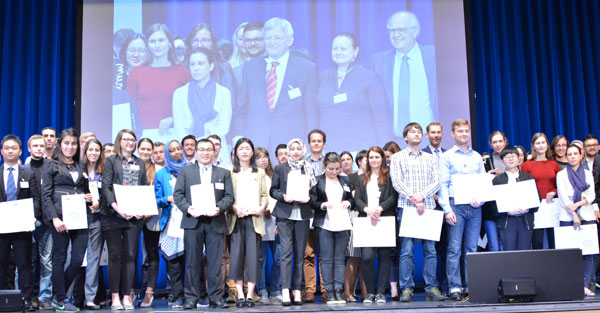
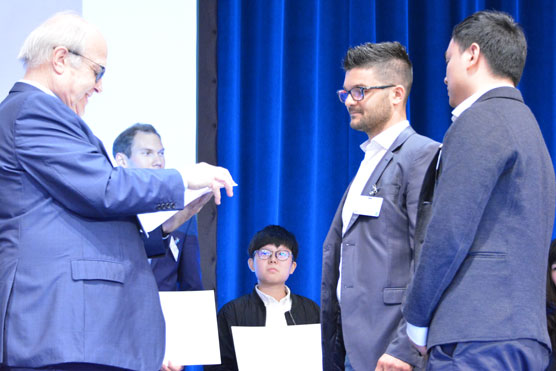
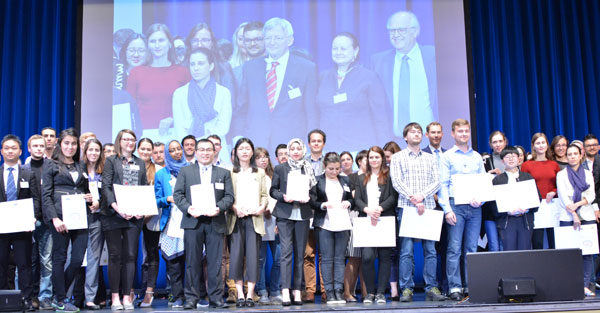
Congratulations to the more than 100 Travel Grant winners 2017!
ESRF and ESC awarded more than 50.000 € in travel grants and highlight prices 2017 to support communication and information of stroke research among students, residents, graduate fellows, young scientists and outstanding international stroke physicians.
This year the ESRF/ESC awarded the youngest travel grant winner ever!
Elias(14 years) Sabra and Haya Sabra ( 13 years) from UK submitted their abstract:
Teenagers knowledge of stroke warning signs and potential risk factors
Sabra1,2, H. Sabra2, A. Sabra1
1Swansea University, Swansea, United Kingdom
2Secondary School Student, Olchfa Secondary School, Swansea, United Kingdom
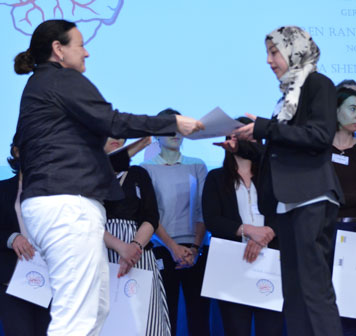
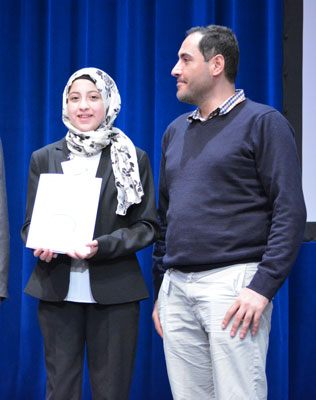
European Stroke Conference/European Stroke Research Foundation – Travel Grants 2017
Abo Ahmad, Israel, U. Yilmaz, Germany, T.F. Blasberg, Germany, A. Bhasin, India, Y.M. Law, Hong Kong, J. Lim, USA, V. Manolov, Bulgaria, A. Kulesh, Russian Federation, R. Bourcier, UK, . Mishra, India, A. Stockenhuber, UK, K. Tadevosyan, Armenia, D. Mantilla, France, A. Filipov, Germany, S. Kelavkar, UK, D. Yang, China, Y. Xiong, China, A. Giede-Jeppe, Germany, S. Sandhu, India, N. Ito, Japan, A. Hashimoto, Japan, T. Negoto, Japan, S. Niklass, Germany, A. Smelkowska, Poland, I.A. Koltsov, Russian Federation, H.-H. Tien, Taiwan, A. Gabet, France, A. Joerk, Germany, K. Jo, South Korea, H.-H. Su, Taiwan, T. Kherkheulidze, Georgia, Y. Edwards, UK, Y.-H. Lin, Taiwan, C. Larkman, Australia, D. Tukhtamisheva, Uzbekistan, X. Xie, China, D. Munari, Italy, E. Chuluunbaatar, Mongolia, M. Khadiev, Uzbekistan, S. Murase, Japan, L. Zhan, China, S.-Y. Cho, South Korea, N. Dupre, France, D. Behme, Germany, W. Davison, UK, L. Hubertjean, France, A. Evdokimenko, Russian Federation, J. Evdokimenko, UK, J. Pelz, Germany, D.H. Yoo, South Korea, F. Ouyang, China, V.L. Németh, Hungary, A. Minasyan, Germany, A. Kryukov, Russian Federation, N. Bizovičar, Slovenia, L. Pavolucci, Italy, P. Kuznetsova, Russian Federation, K. Karničnik, Slovenia, A. Raskurazhev, Russian Federation, A. Miller, UK, T.Y. Kern, Germany, P. Duchnowski, Poland, M. Avery, Canada, M.-N. Psychogios, Germany, N. Elseed, Ireland, T. Kitano, Japan, J. Rosinska, Poland, C. Chitwood, USA, Y. Liang, Hong Kong, P.-Y. Chang, Taiwan, W. Khalid, Parkistan, K. Chadd, UK, C.J. Schwarzbach, Germany, S. Zahi, Morocco, A. Stepanyan, Armenia, R. Roelz, Germany, F. Rickard, UK, S. H ou, China, F. Rohlffs, Germany, N. McNeela, UK, S. Kashefiolasl, Germany, F. Robertson, USA, D. Akramova, Uzbekistan, M.V. Gubanova, Russian Federation, P.M. Fernandes, UK, M. Turk, Slovenia, K. Pavsic, Slovenia, M. Leer, UK, M. Greenhalgh, UK, E. Sabra, UK, A. Mowla, USA, M. Ghaffari, USA, A. Zimin, Russian Federation, N. Wenger, USA, S. Luger, Germany, M.R. Hov, Norway, M. Shendyapina, Russian Federation, M. Salokhiddinov, Uzbekistan
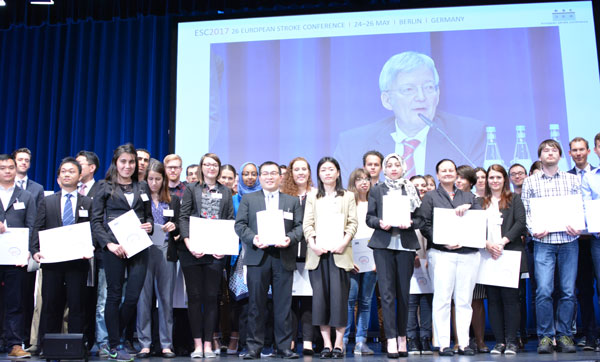
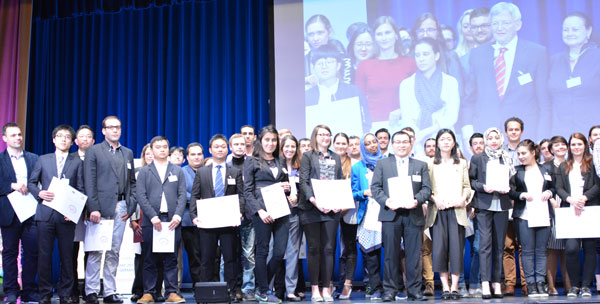
Please find more information on www.eurostroke.eu and on Facebook and Twitter!
ESRF Grants 2015 - Both ESRF and ESC awarded more than 60.000 € in junior travel grants and highlight prices for best scientific contributions this year!
The “Johann Jacob Wepfer Award“ (20.000 €) of the ESC honors scientists for their outstanding scientific work in the field of cerebrovascular diseases and significant contributions to our knowledge about treatment of acute stroke since 2005:
Prof. M. Kaste, Finland in 2006
Prof. C. Warlow, United Kingdom in 2007
Prof. M.G. Bousser, France in 2008
Prof. JP Mohr, USA in 2009
Prof. J. van Gijn, The Netherlands in 2010
Prof. W.D. Heiss, Germany 2011
Prof. L. Caplan, USA 2012
Prof. H.-C. Diener, Germany and Prof. W.Hacke, Germany 2013
Prof. S. Davis and Prof. G. Donnan, Australia 2014
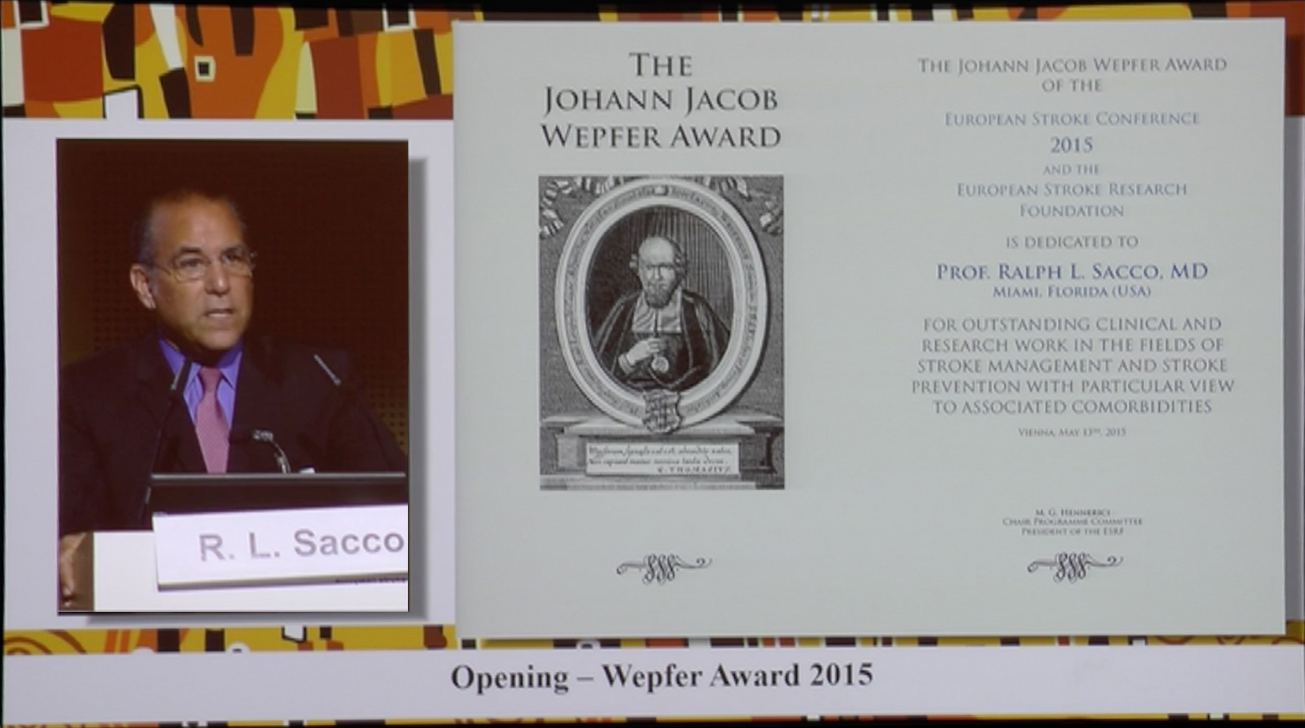
R Sacco was the first neurologist and stroke expert elected as President of the American Heart Association and is President elect of the American Academy of Neurology, the world´s largest neurological organisation.
„Wepfer Award Winner 2015“
Prof R. Sacco, USA
In this tradition, the ESRF awarded 2015 Prof R. Sacco, USA for his outstanding contributions to interdisciplinary stroke research among different medical specialties:
21 HIGHLIGHT PRICES were awarded for best ranked abstract submissions on basic and clinical research from 15 countries around the world.
Overall, both ESRF and ESC awarded more than 60.000 € in travel grants and highlight prices this year to support communication and information of stroke research among students, residents, graduate fellows, young scientists and outstanding international stroke physicians.
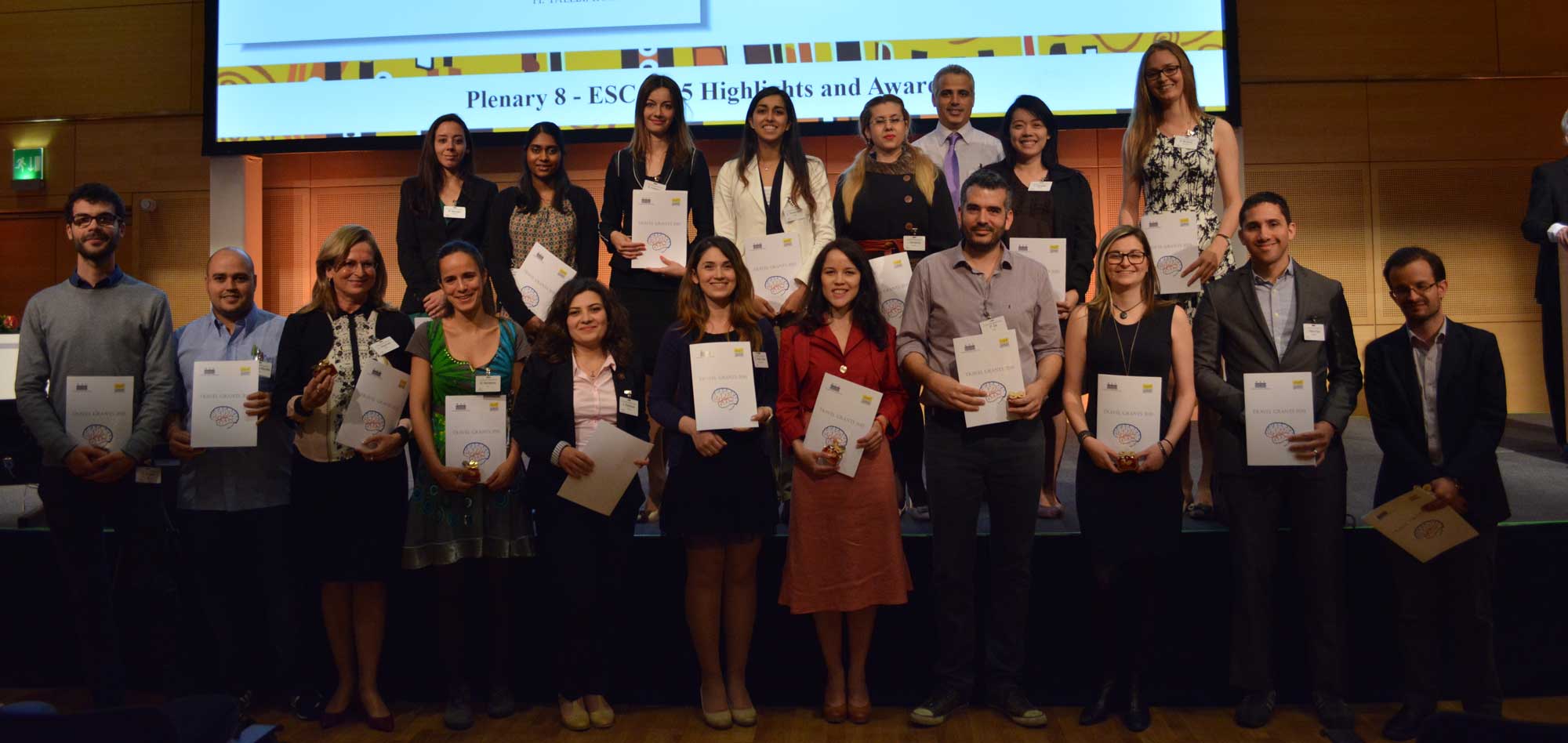
In addition, among abstracts submissions 19 JUNIOR INVESTIGATOR TRAVEL GRANT APPLICATIONS have been selected by ESC and ESRF board members.
Thus 40 winners from 24 countries all around the world were presented in a Plenary Session in Vienna on Friday May 15th, 2015 11:45-12:45 www.eurostroke.eu
ESRF and Cerebrovascular Diseases Symposium
(ESRF/Cerebrovascular Diseases sponsored a „Plenary Session“ during the European Stroke Conference in Vienna 2015)
Please visit the new webdokumentation Vienna 2015 to join this session online on http://www.eurostroke.com
The promise of neurorecovery from stroke: from molecules to networks
Chairs: D. Corbett (Canada), S. Meairs (Germany)
Molecular basis of stroke recovery in animal models
T. Carmichael (USA)
Finding an optimal rehabilitation paradigm after stroke – enhancing fiber growth and training of the brain at the right moment
M. Schwab (Switzerland)
Cortical reorganisation after stroke – How much and how functional?
C. Grefkes (Germany)
Tools to study the connectome in animal models of stroke
T. Murphy (Canada)
